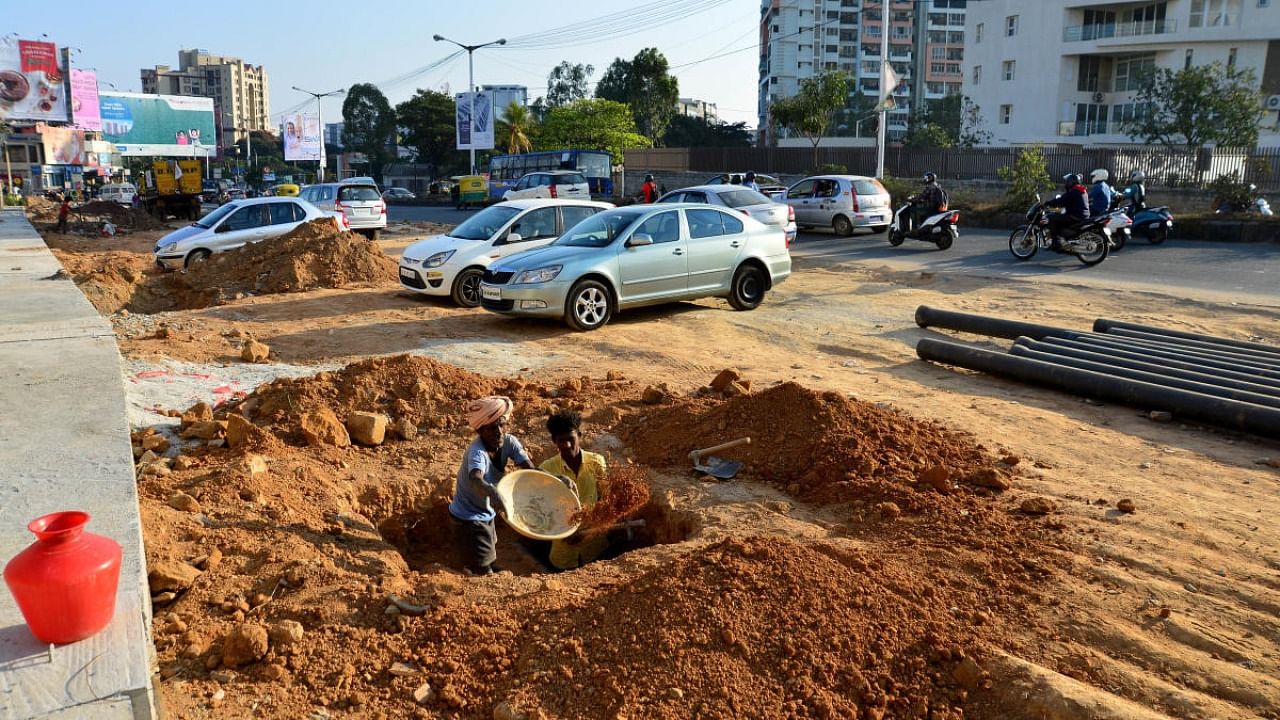
The state government will stick to Transferable Development Rights (TDR) as the only way to acquire land for widening Bannerghatta, Begur and Sarjapur roads in Bengaluru, Chief Minister Basavaraj Bommai said in the Legislative Assembly on Tuesday.
The widening of three arterial roads has been delayed due to troubles with land acquisition.
Private property owners are demanding cash compensation instead of the TDR.
The TDR refers to the grant of additional built-up area to a landowner in return for the portion of a plot taken for a public project.
“There’s a metro line that goes on these roads. The BMRCL, in order to fasten its work, offered higher compensation rates.”
“So property owners want the BBMP to fix the same rate as the BMRCL and they don’t want TDR,” Bommai said while answering a question raised by Bommanahalli MLA, M Satish Reddy.
According to Bommai, the government would need Rs 4,475 crore if property owners are to be given cash compensation: Bannerghatta Road (Rs 2,320 crore), Begur Road (Rs 575 crore) and Sarjapur Road (1,580 crore). “That would be a big burden on the BBMP. So we want to stick to the TDR,” he said.
The widening of Bannerghatta Road started in September 2017 and was to conclude in February 2019. The deadline has now been revised to March 2022.
The work to widen Sarjapur Road started in March 2018, two a March 2020 deadline. It’s now expected to get over only in March next year. Begur Road is scheduled to be widened by August 2022.
“Nobody is ready to take the TDR. We need to strengthen the TDR and make it more valuable. We need a TDR bank,” Reddy said.
Acknowledging the problems with the TDR, Bommai said the government had come up with a plan to simplify it.
“The TDR regime came under both the BBMP and the BDA. We have now decided to bring the TDR under one authority,” he said.
The chief minister invited MLAs from Bengaluru to give suggestions on creating a bank for trading TDRs.
95% of sewage treated in city, says Bommai
Bengaluru generates 1,440 million litres per day (MLD) of sewage, of which 1,372.50 MLD is being treated at 33 plants, Chief Minister Basavaraj Bommai said. This means nearly 95% of the sewage is being treated in the city.
“In six months, new plants with a 290 MLD capacity will be started,” he said while responding to a question asked by former minister K J George on sewage treatment in the city.
Bommai said the government would encourage the use of bioremediation in sewage treatment. “Bioremedy is a new thing. I’ve asked officials to check it out."
Watch latest videos by DH here: